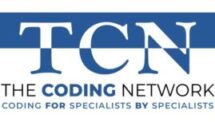Sutter Health LLC, a California-based healthcare services provider, and several affiliated entities, Sutter East Bay Medical Foundation, Sutter Pacific Medical Foundation, Sutter Gould Medical Foundation, and Sutter Medical Foundation, have agreed to pay $30 million to resolve allegations that the affiliated entities submitted inaccurate information about the health status of beneficiaries enrolled in Medicare Advantage Plans, which resulted in the plans and providers being overpaid, the Justice Department announced today. Sutter Health is headquartered in Sacramento, California.
“The Medicare Advantage Program provides benefits to a significant portion of federal health care beneficiaries,” said Assistant Attorney General Jody Hunt of the Department of Justice’s Civil Division. “The Department of Justice will help ensure that accurate information is supplied to the Medicare Advantage Program by plans and providers, and to pursue appropriate remedies when it is not.”
Under Medicare Advantage, also known as the Medicare Part C program, Medicare beneficiaries have the option of enrolling in managed healthcare insurance plans called Medicare Advantage Plans (“MA Plans”) that are owned and operated by private Medicare Advantage Organizations (“MAOs”). MA Plans are paid a capitated, or per-person, amount to provide Medicare-covered benefits to beneficiaries who enroll in one of their plans. The Centers for Medicare and Medicaid Services (“CMS”), which oversees the Medicare program, adjusts the payments to MA Plans based on demographic information and the health status of each plan beneficiary. The adjustments are commonly referred to as “risk scores.” In general, a beneficiary with more severe diagnoses will have a higher risk score, and CMS will make a larger risk-adjusted payment to the MA Plan for that beneficiary.
Sutter Health, a non-profit public benefit corporation that provides healthcare services through its affiliates, including hospitals and medical foundations, contracted with certain MAOs to provide healthcare services to California beneficiaries enrolled in the MAOs’ MA Plans. In exchange, Sutter received a share of the payments that the MAOs received from CMS for the beneficiaries under Sutter’s care.
Sutter submitted diagnoses to the MAOs for the MA Plan enrollees that they treated. The MAOs, in turn, submitted the diagnosis codes to CMS from the beneficiaries’ medical encounters, such as office visits and hospital stays. The diagnosis codes were used in CMS’ calculation of a risk score for each beneficiary.
The settlement announced today resolves allegations that Sutter and its affiliates submitted unsupported diagnosis codes for certain patient encounters of beneficiaries under their care. These unsupported diagnosis scores inflated the risk scores of these beneficiaries, resulting in the MAO plans being overpaid.
Earlier this month, the government filed a complaint against Sutter and a separate affiliated entity, Palo Alto Medical Foundation, alleging that they violated the False Claims Act by knowingly submitting unsupported diagnosis scores. That case is captioned United States ex rel. Ormsby v. Sutter Health, et al., Case No. 15-CV-01062-JD (N.D. Cal.), and is still ongoing.
“Misrepresenting patients’ risk results in higher payments and wasted Medicare funds,” said Steven J. Ryan, Special Agent in Charge with the Office of Inspector General for the U.S. Department of Health and Human Services. “With some one-third of people in Medicare now enrolled in managed care Advantage plans, large health systems such as Sutter can expect a thorough investigation of claimed enrollees’ health status.”
The settlement was the result of a coordinated effort by the Civil Division’s Commercial Litigation Branch, the United States Attorney’s Office for the Northern District of California, and HHS-OIG.
The claims resolved by the settlement are allegations only, and there has been no determination of liability.
Topic(s):
False Claims Act
Component(s):
Press Release Number:
19-379






